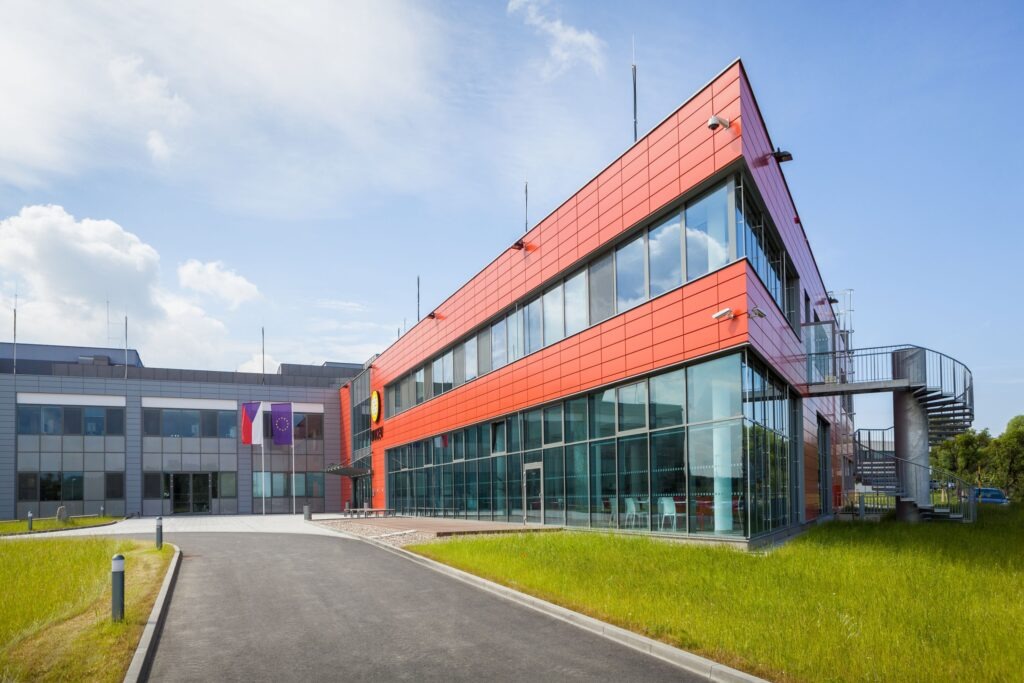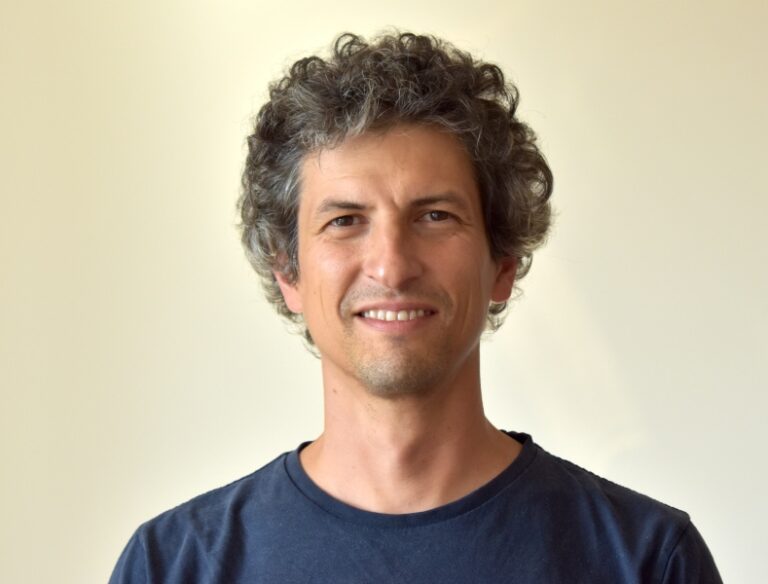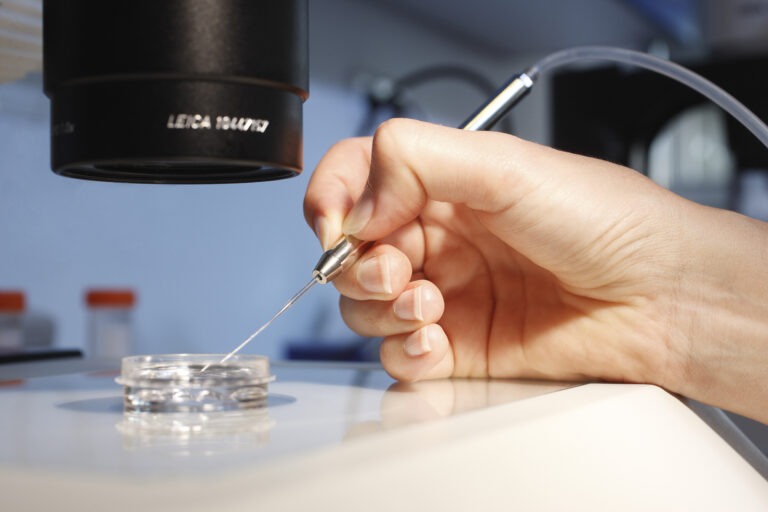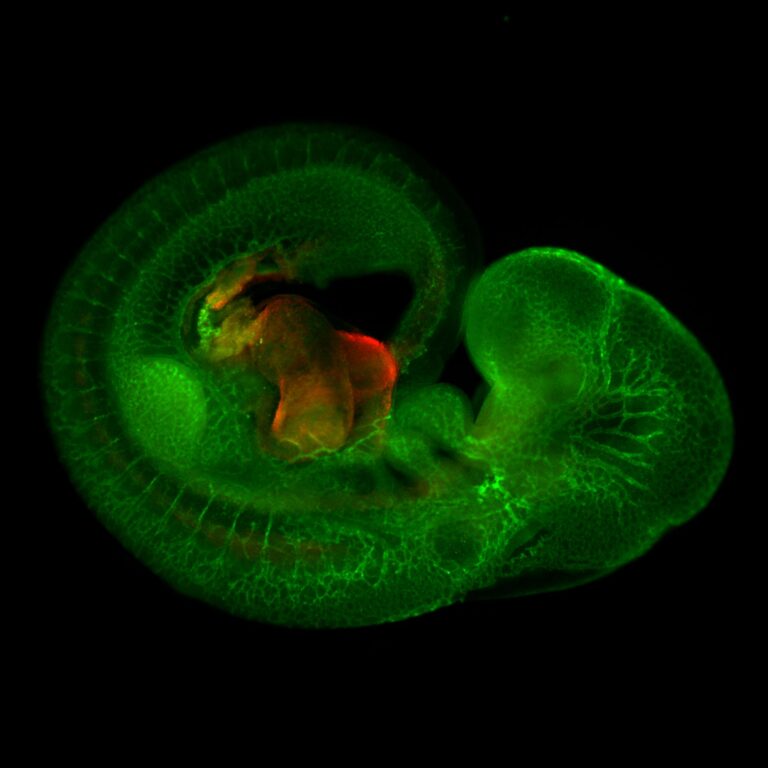
Institute of Biotechnology of the Czech Academy of Sciences / BIOCEV
General description
IBT is a research organisation (located in the BIOCEV) focused on excellent basic research in molecular biology with prospective transfer of biotechnological methods and tools to human medicine. The institute has achieved remarkable results, such as the successful development of new diagnostic procedures and vaccines and results in breast cancer treatment MitoTam. IBT´s mission is to focus research on molecular mechanisms of pathologies with considerable impact on population health, to develop new methods of protein engineering and structural biology, to understand the functioning of biological molecular systems and open new ways to modify them.
Key Research Facilities, Infrastructure and Equipment
- Cell culture and protein expression: biological safety cabinets, refrigerated/dedicated shakers, fermenters, centrifuges, sonicators, Avestin cell disruptor.
- Protein purification: 5x advanced FPLC systems, state-of-the-art HPLC systems with DAD, fluorescence and MS detectors, bioinert HPLC with UV-VIS, fluorescence and MALLS detection.
- Enzymology/molecular biology: PCR, agarose gel, SDS-PAGE instruments, documentation systems (LAS4000 CCD, Typhoon 9500), 3x high-end fluorescence/luminescence plate readers.
- Biophysical equipment: CD spectrometer, Octet platform, Monolith thermophoresis, ITC/DSC calorimeters, Prometheus NT48 DSF, dynamic light scattering, capillary electrophoresis, 4x mass spectrometers, crystallization robots, automated crystallization hotels, X-ray diffractometer, SAXS.
- Stereomicroscopes, Leica fluorescence stereomicroscope, vibratome, microtome, cryostat, PCR machines.
- Gene Expression Facility.
- Sophisticated technologies used in current biomedical research, including animal facility, electron and confocal microscopy, and FACS
- Imaging with single molecule resolution, super-resolution imaging and optical trapping
- Czech Centre for Phenogenomics: large research infrastructure unique in combining genetic engineering capabilities, advanced phenotyping and imaging modalities, specific pathogen free (SPF) animal housing and husbandry, as well as cryopreservation and archiving.
Contact person
Contact us to know more about our location and work environment. Please use the main contact for questions related to administrative matters. Please contact the supervisors/group leaders of respective research groups regarding feasibility of your research proposal with regard to the research group activities.
Your future supervisors

Zdeněk Lánský

Zdeněk Lánský
I am a group leader at the Institute of Biotechnology, Czech Academy of Sciences. My lab is an international and inter-disciplinary group of biologists, chemists and physicists. We use single molecule experimental methods to uncover molecular mechanisms of intracellular transport, which is essential for example for the function of neurons. Our research is now funded by an ERC synergy grant, linking our lab with three labs from the Institut Curie, INSERM Paris and UC Berkeley, and enabling us to expand our research to all biologically relevant scales, from atoms to whole organisms.
About the position
The successful candidate will be based at the Institute of Biotechnology, Czech Academy of Sciences. The Postdoctoral fellow will join the Laboratory of Structural Proteins, which studies molecular mechanisms underpinning foundational processes in ontogenetic development, such as neuronal pathfinding, long-range intracellular transport or contractility and chirality of actin networks. The key experimental approaches of the research group include single molecule imaging using state of the art microscopy methods and single molecule force measurement and manipulation using optical tweezers. The fellow may also liaise with a wide network of the group’s international collaborators through international secondments. Given the main focus of the research group, the expected outputs of the fellowship are high-level scientific publications. We are looking for talented and enthusiastic experimentalists or theoreticians, with backgrounds in (bio)physics, (bio)chemistry, biology, or an equivalent field, motivated to work on a cross-disciplinary project.

Gabriela Pavlinkova

Gabriela Pavlinkova
I am the Head of the Laboratory of Molecular Pathogenetics. I graduated in Immunology and Developmental Biology at Charles University in Prague. After graduation I worked as a Research Associate, and Instructor at the University of Kentucky, and until 2008 as an Assistant Professor at the University of Nebraska Medical Center, USA. My research focuses on defining transcriptional and epigenetic regulations during embryonic development to understand molecular mechanisms in congenital defects and adult diseases.
About the position
The Postdoctoral fellow will join the research team of Laboratory of Molecular Pathogenetics that is focused on epigenetic and transcriptional regulations during embryonic development. Understanding the different ways in which epigenetic signals and transcription factor networks govern self-renewal, cell specification, differentiation, and reprogramming is a key step for advances in cell-based therapy and perspectives for medicine. Using mouse models, we aim to investigate how elimination and miss-expression of key transcription factors affect epigenetic landscapes and downstream targets during embryonic development, and lead to predispositions and pathogenesis of disease. We use Cre/loxP and global gene expression profiling (RNA sequencing), single cell RNA sequencing, CUT&RUN chromatin profiling, FACS, confocal microscopy, immunohistochemistry, and in situ hybridization to evaluate molecular phenotypes and regulatory mechanisms.
The candidate should hold a PhD degree in cell biology, genetics, biomedicine, molecular biology or related sciences. Prior experience working with mice, and knowledge of bioinformatics is a plus. The candidate should be able work independently with a proactive attitude, excellent communication skills, and be prone to teamwork.
We offer to work in a creative, multidisciplinary international team. The laboratory is a part of the Institute of Biotechnology (www.ibt.cas.cz) located at BIOCEV, providing an inspiring multi-disciplinary research environment and access to state-of-the-art technologies and instruments. Our laboratory collaborates with a number of European and US laboratories, including the University of California San Diego, John Hopkins University, Technical University München, and Karolinska Institutet. Given the main focus of our research group, the expected outputs of the fellowship are high-level scientific publications.

Cyril Barinka

Cyril Barinka
I graduated in Biochemistry at Charles University, Prague, and did my PhD at the Institute of Organic chemistry & Biochemistry, Prague. From 2005 to 2010, I worked as a postdoctoral fellow at the National Cancer Institute, Maryland, US, focusing on macromolecular crystallography. Upon my return to the Czech Republic, I established a research group at the Institute of Biotechnology of the Czech Academy of Sciences where we strive to understand molecular mechanisms of histone deacetylases, tubulin-modifying enzymes, and to develop (macro)molecular ligands for prostate cancer imaging and therapy.
About the position
The successful candidate will join the research team of Laboratory of Structural Biology where she/he will co-lead a project aimed at structural and functional characterization of zinc-dependent histone deacetylases (HDACs). The multidisciplinary project is aimed at providing a mechanistic understanding of physiological roles of HDACs at the molecular level. To this end, we use molecular biology, biophysical techniques, genetic code expansion technology, single molecule TIRF microscopy, and X-ray crystallography/cryoEM to understand the recognition of substrates by HDACs. The combined knowledge will be further used to develop isoform- as well organism-specific HDAC inhibitors. Metabolomics and lipidomics will complement in vitro studies in our quest to identify unknown physiological substrates and roles of HDACs in physiology. Given the main focus of the research group, the expected outputs of the fellowship are high-level scientific publications.
The candidate shall have a PhD degree in biochemistry, molecular biology, biophysics, structural biology, or a related field. She/he shall have a record of publications in peer-reviewed international journals, excellent communication skills and be able to work independently with a proactive attitude but also as a part of a multi-person research team. She/he will contribute to supervision of junior colleagues, manuscript writing, and present your results at international meetings. Prior experience with heterologous protein expression and purification, biophysics, structural methods, cryoEM, and enzyme kinetics is a plus. The fellow may also liaise with a wide network of our international collaborators through international secondments in Germany and US.




